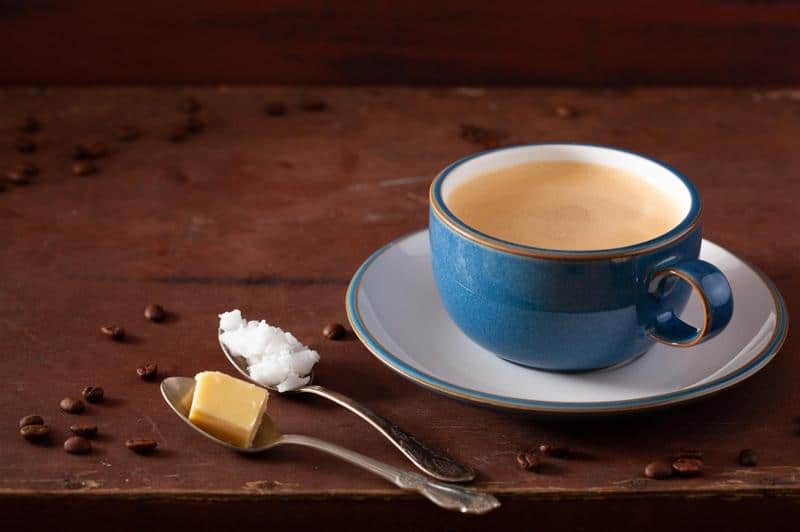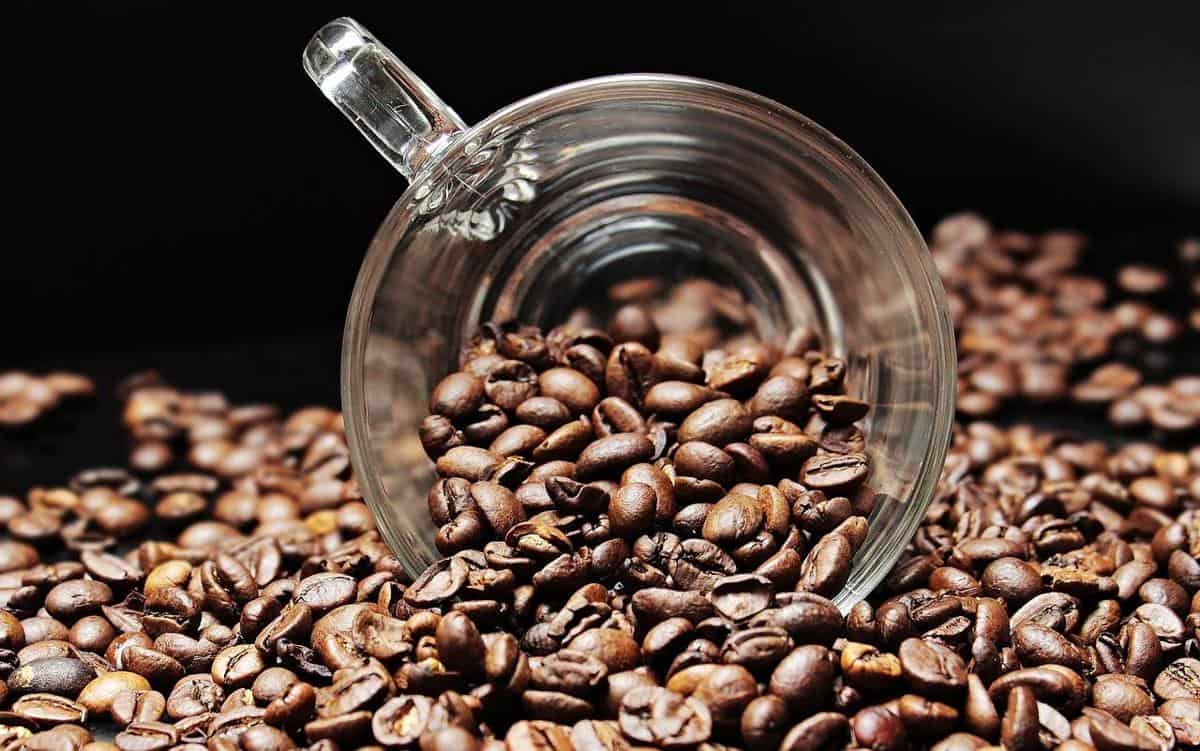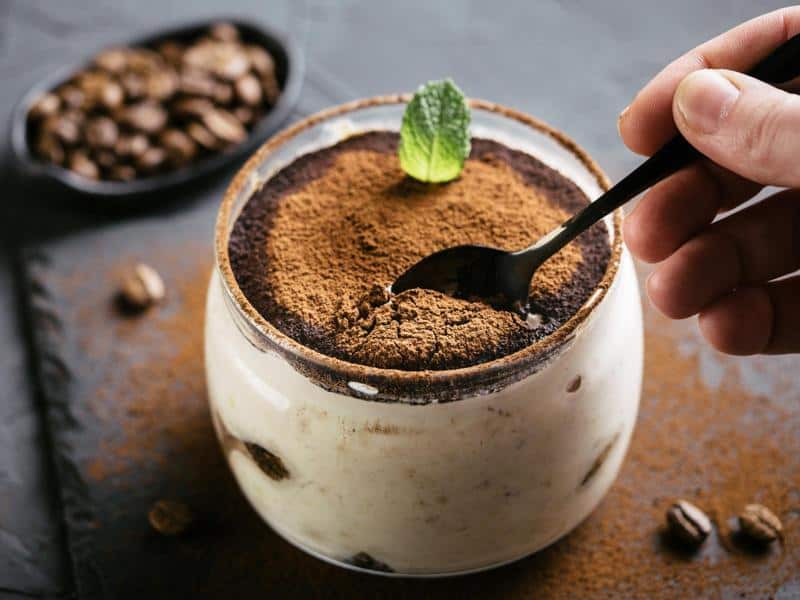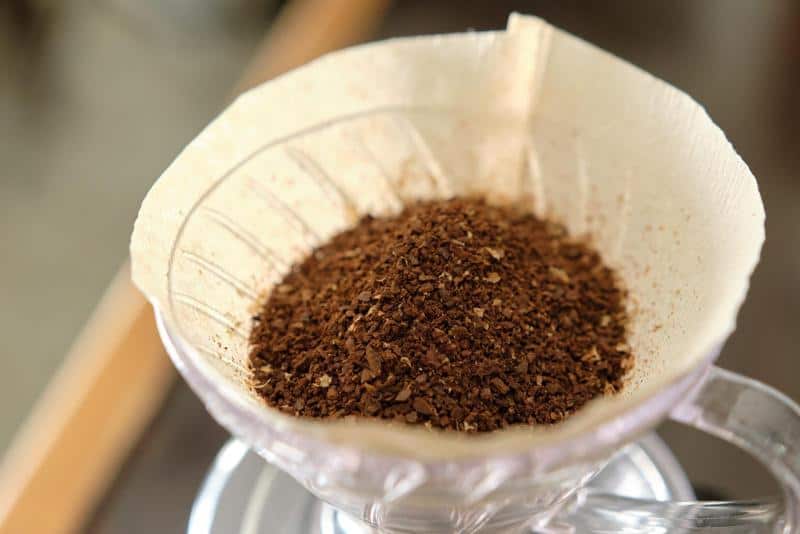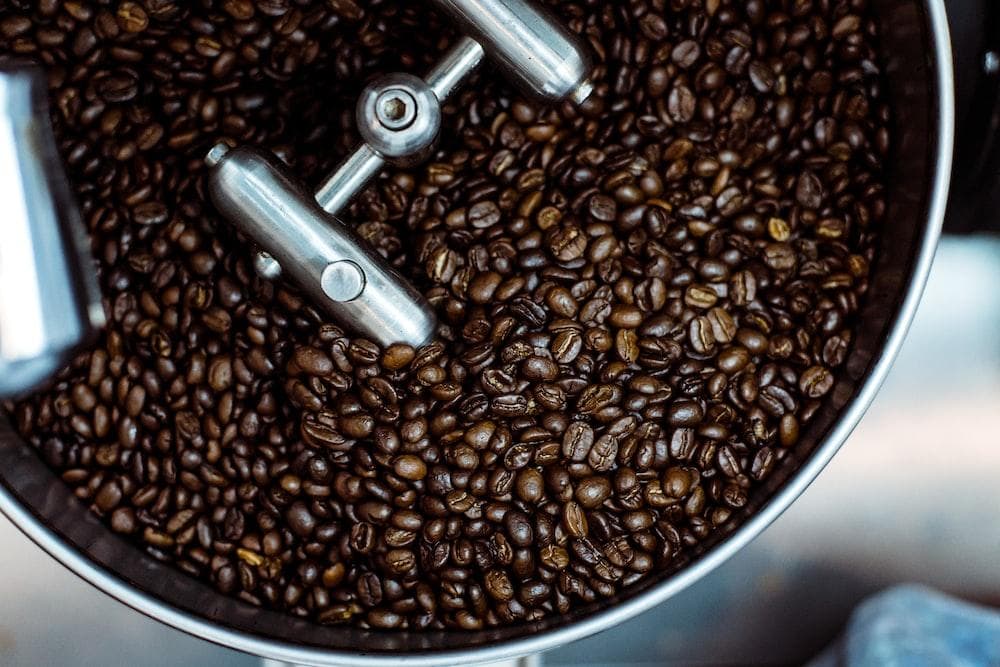Coffee, a beloved beverage enjoyed by millions around the world, has become a topic of controversy within the Paleo diet community. Is coffee paleo friendly? As adherents of this ancestral approach to nutrition strive to mimic the diets of our Paleolithic ancestors, questions have arisen about whether coffee aligns with the principles of this dietary framework. In this article, we will delve into the confusion surrounding coffee in the Paleo diet and uncover the ultimate truth.
The origins of the Paleo diet can be traced back to our ancestors who lived during the Paleolithic era, before the advent of agriculture. This hunter-gatherer lifestyle predominantly consisted of consuming whole foods such as lean meats, fish, fruits, vegetables, nuts, and seeds. Proponents argue that this way of eating promotes optimal health by eliminating processed foods and focusing on nutrient-dense options that our bodies are genetically adapted to digest.
However, when it comes to coffee, there is much debate regarding its compatibility with the Paleo diet. Coffee is derived from roasted coffee beans and contains caffeine, which prompts concerns among some followers of this dietary regimen.
Advocates argue that coffee offers numerous potential health benefits, while skeptics question its impact on gut health and overall compatibility with a truly Paleolithic diet. In order to make an informed decision about whether or not coffee is indeed Paleo-friendly, it is crucial to examine its nutritional composition and evaluate both its advantages and drawbacks.
Intrigued yet puzzled? Join us as we unravel the mysteries surrounding coffee in relation to the Paleo diet. By exploring expert opinions and research findings on this subject matter, we will debunk common misconceptions and shed light on alternative coffee options for those committed to a Paleo lifestyle. So grab your favorite cup of java as we embark on this journey toward discovering whether or not coffee is truly compatible with the principles outlined by our ancestral predecessors.
The Origins of the Paleo Diet
The Paleo diet, also known as the Paleolithic diet or the caveman diet, is based on the idea of imitating the eating patterns of our ancestors from the Paleolithic era. This diet emphasizes consuming whole, unprocessed foods that would have been available to our hunter-gatherer ancestors, such as lean meats, fruits, vegetables, nuts, and seeds.
By following this ancestral approach to nutrition, proponents of the Paleo diet believe that they can improve their overall health and avoid the chronic diseases that are commonly associated with modern diets.
The origins of the Paleo diet can be traced back to several influential books and figures in the health and wellness community. One key figure is Dr. Loren Cordain, a professor emeritus at Colorado State University who wrote “The Paleo Diet” in 2002. This book introduced the concept of following a diet that mimics what our ancestors ate in order to optimize health and well-being.
Dr. Cordain argues that our bodies have not evolved quickly enough to adapt to modern dietary changes, such as the introduction of grains and processed foods. According to him, these foods can lead to inflammation and other health issues. By adopting a Paleo lifestyle and focusing on nutrient-dense foods like fruits, vegetables, and quality animal proteins, individuals can achieve optimal health and prevent disease.
While coffee is not typically considered part of a traditional Paleo diet due to its relatively recent introduction into human diets, many people who follow this lifestyle still choose to include it in their daily routine. However, it’s important to note that there is some controversy surrounding coffee within the Paleo community.
Some argue that coffee should be avoided altogether because it can potentially have negative effects on gut health or disrupt sleep patterns. Others believe that moderate consumption of coffee can be included if it does not cause adverse effects for an individual.
As with any aspect of the Paleo diet, it ultimately comes down to personal preference and individual tolerances. While coffee does not fit into the strictly defined guidelines of a traditional Paleo diet, some individuals may find that they can still enjoy coffee as part of a healthy lifestyle. It’s important to listen to your body and make choices that align with your overall health goals and preferences.
Unveiling the Nutritional Composition of Coffee
Coffee is a popular beverage consumed by many individuals around the world. As coffee has become a staple in modern society, there has been growing interest in understanding its nutritional composition and whether it aligns with the principles of the Paleo diet. In this section, we will explore the nutritional composition of coffee and determine whether it can be considered Paleo-friendly.
When examining the nutritional content of coffee, it is important to note that black coffee itself contains virtually no calories, fat, carbohydrates, or protein. However, it does contain several bioactive compounds that may provide health benefits. One of these compounds is caffeine, which stimulates the central nervous system and can improve focus and alertness. Another compound found in coffee is chlorogenic acid, which has antioxidant properties and may help reduce inflammation.
Although black coffee does not pose any significant concerns for those following a Paleo lifestyle, it is common for individuals to add various ingredients to their coffee such as milk, creamers, sweeteners, or flavorings. These additions can significantly alter the nutritional profile of coffee and may not align with the principles of the Paleo diet.
For example, if traditional dairy milk is added to coffee, it introduces lactose and potentially inflammatory proteins into one’s diet – both of which are avoided on a strict Paleo regimen.
| Nutrient | Amount per 100g |
|---|---|
| Calories | 1 |
| Protein | 0g |
| Fat | 0g |
| Carbohydrates | 0.3g |
| Caffeine | 40mg |
As seen from this nutritional breakdown, black coffee is extremely low in calories, fat, and carbohydrates. The caffeine content can vary depending on the brewing method and the type of coffee beans used. It is important to note that individuals may have different reactions to caffeine and should consider their tolerance levels when determining whether coffee is suitable for their Paleo lifestyle.
The Benefits of Coffee
Coffee is one of the most popular beverages worldwide, known for its rich aroma and stimulating effects. In recent years, there has been much debate within the Paleo community about whether coffee is compatible with the principles of a Paleo diet. In this section, we will explore the potential health benefits and drawbacks of coffee consumption.
One of the main reasons why coffee has gained attention in the health community is due to its high antioxidant content. Antioxidants are compounds that help protect against oxidative stress and damage caused by free radicals in the body. Studies have shown that regular coffee consumption may be associated with a reduced risk of chronic diseases such as cardiovascular disease, type 2 diabetes, and certain types of cancer.
Additionally, coffee has been found to improve cognitive function and reduce the risk of neurodegenerative diseases like Alzheimer’s and Parkinson’s. The caffeine in coffee acts as a stimulant, enhancing alertness, focus, and overall mental performance.
However, it is important to note that excessive consumption of coffee can have negative effects on health. Some individuals may experience symptoms such as sleep disturbances, increased heart rate, or gastrointestinal issues like acid reflux or stomach ulcers. It can also act as a diuretic, leading to increased urination and potential dehydration if not balanced with adequate fluid intake.
It is crucial for each individual following a Paleo diet to listen to their body’s response to coffee consumption and make adjustments accordingly. Moderation is key when it comes to enjoying the potential benefits of coffee while minimizing any potential drawbacks.
Exploring the Caveats
The Gut Microbiome: A Key Player in Health
The gut microbiome refers to the complex community of microorganisms that reside in our digestive tract. These microorganisms, which include bacteria, viruses, fungi, and other microbes, play a crucial role in maintaining our overall health. They aid in digestion, nutrient absorption, immune function, and even influence our mood and mental well-being.
How Coffee Affects the Gut Microbiome
While coffee is a popular beverage enjoyed by many, it can have both positive and negative effects on the gut microbiome. On one hand, studies have shown that coffee consumption can increase the production of short-chain fatty acids (SCFAs) in the gut. SCFAs are beneficial compounds that help nourish the cells lining the colon and provide various health benefits such as reducing inflammation.
On the other hand, coffee also contains substances known as polyphenols and caffeine which can act as irritants to the gut lining. These compounds may disrupt the delicate balance of bacteria in the gut by promoting the growth of harmful or pathogenic bacteria while decreasing levels of beneficial bacteria. Additionally, excessive coffee consumption may lead to increased gastric acid secretion and contribute to conditions like acid reflux or heartburn.
Individual Variations and Personal Experimentation
It’s important to note that the impact of coffee on gut health can vary greatly from person to person. While some individuals may experience digestive discomfort or adverse effects from drinking coffee, others may tolerate it well without any issues. Furthermore, factors such as roast level, brewing method, quality of beans, and even individual sensitivity to caffeine can influence how coffee affects an individual’s gut health.
For those following a Paleo lifestyle with concerns about their gut health, it may be beneficial to experiment with eliminating or reducing coffee intake for a period of time and then reintroducing it gradually while monitoring any changes in symptoms or gut function. This self-experimentation can help individuals determine their own personal tolerance and whether coffee is compatible with their gut health goals within the context of a Paleo diet.
The Advocates of Coffee in the Paleo Community
Coffee has long been a subject of debate within the Paleo community regarding its compatibility with the ancestral approach to nutrition. While some adherents argue that coffee can be a healthy and acceptable addition to a Paleo diet, others believe it should be strictly avoided due to its potential negative effects on gut health and overall well-being.
Expert Opinions on Coffee in the Paleo Diet
Many experts within the Paleo community are advocates of including coffee in a Paleo diet. They argue that when consumed in moderation, coffee can offer various health benefits. One of the primary reasons for this endorsement is coffee’s high antioxidant content. Antioxidants play a crucial role in neutralizing harmful free radicals and reducing the risk of chronic diseases such as heart disease and certain types of cancer.
Furthermore, research has suggested that moderate consumption of coffee may have positive effects on brain health. The presence of caffeine in coffee has been linked to improved cognitive function, increased alertness, and enhanced mood. Additionally, studies have shown that coffee consumption may help reduce the risk of neurodegenerative diseases like Parkinson’s and Alzheimer’s.
Research Findings on Coffee Consumption
Several studies have explored the impact of coffee consumption on various aspects of health. Some research indicates that regular consumption may lower the risk of developing type 2 diabetes, liver disease, and certain cancers such as liver and colorectal cancer. Moreover, evidence suggests that drinking moderate amounts of coffee may contribute to weight loss or weight management due to its thermogenic properties and ability to enhance fat oxidation.
However, it is important to note that individual responses to coffee can vary greatly depending on factors such as genetics, metabolism, overall dietary patterns, and any existing health conditions. It is recommended to consult with a healthcare professional before making any changes to your diet or introducing new foods or beverages like coffee.
While there are advocates within the Paleo community who support including coffee in a Paleo diet, it is important to consider the potential drawbacks and impact on gut health, which will be discussed in the following section.
While there is still debate about whether coffee is truly Paleo-friendly, many proponents of the Paleo diet choose to avoid it due to concerns about its potential negative effects on gut health and overall wellness. However, for those who can’t imagine starting their day without a cup of joe, there are alternative coffee options that may be more aligned with the principles of the Paleo diet.
One alternative to consider is herbal tea. Herbal teas made from ingredients such as dandelion root, chicory root, or roasted barley can provide a similar flavor profile to coffee without the caffeine. These herbal alternatives are naturally caffeine-free and contain various health-promoting compounds, making them a popular choice among those following a Paleo lifestyle.
Another option is mushroom coffee, which has gained popularity in recent years. Mushroom coffee blends include medicinal mushrooms like chaga or lion’s mane along with regular coffee beans. These mushrooms offer numerous health benefits such as immune support and improved cognitive function, making them an appealing alternative for those seeking a nutritious substitute for traditional coffee.
Those who prefer a hot beverage but want to avoid caffeine altogether may find solace in various herbal elixirs or tonics. These beverages are often made from adaptogenic herbs like ashwagandha or maca root, which can help reduce stress levels and promote overall well-being. Additionally, they offer unique flavors that can provide a delightful alternative for individuals looking to vary their beverage choices.
Coffee in Moderation
For those following the Paleo diet, the question of whether or not coffee is Paleo-friendly can be a subject of debate. While some argue that coffee should be strictly avoided due to its potential drawbacks, others believe that it can be enjoyed in moderation as part of a healthy Paleo lifestyle.
If you find yourself on the latter side of the argument and are looking for tips on how to incorporate coffee into your Paleo diet, we’ve got you covered.
- Choose quality beans: When it comes to coffee, quality matters. Opt for organic, single-origin coffee beans that are free from pesticides and chemicals. This ensures that you’re consuming clean, high-quality coffee that aligns with the principles of the Paleo diet.
- Watch your additives: While black coffee is generally considered Paleo-friendly, many people enjoy adding various ingredients to enhance its flavor. Be mindful of what you add to your cup of joe and avoid using non-Paleo sweeteners like sugar or artificial creamers. Instead, try adding a splash of unsweetened almond milk or coconut milk for a creamy texture.
- Pay attention to portion sizes: It’s easy to go overboard with coffee consumption, especially if you rely on multiple cups throughout the day for an energy boost. Limit yourself to one or two cups per day to ensure you’re not relying too heavily on caffeine and disrupting your sleep patterns.
- Consider alternative brewing methods: While traditional drip-brewed coffee is popular, there are other brewing methods that can provide unique flavors and minimize undesirable compounds found in coffee. For example, cold brew and French press methods have gained popularity among paleo enthusiasts due to their lower acidity levels.
Incorporating coffee into a Paleo diet requires mindfulness and moderation. By choosing high-quality beans, being mindful of additives and portion sizes, and considering alternative brewing methods, you can enjoy a cup of coffee while staying true to the principles of the Paleo lifestyle. Remember, it’s important to listen to your body and make choices that align with your individual health goals.
Myth Busting
Many people have misconceptions about whether coffee is compatible with the Paleo diet. Let’s take a closer look at some of these common myths and debunk them.
One common misconception is that coffee is not paleo-friendly because it is a stimulant. While it is true that coffee contains caffeine, this does not automatically make it incompatible with the Paleo diet. In fact, many followers of the Paleo diet rely on coffee to give them a boost of energy in the morning or during their workouts.
The key here is moderation. As long as you consume coffee in moderation and it doesn’t disrupt your sleep or cause any other negative effects, there is no reason why you can’t enjoy a cup or two as part of your paleo lifestyle.
Another myth surrounding coffee and its compatibility with the Paleo diet is that it can lead to addiction. While caffeine can be addictive for some individuals, this does not mean that everyone who consumes coffee will become addicted to it.
Addiction depends on various factors such as individual susceptibility and consumption habits. If you find that you are becoming too reliant on coffee or experiencing withdrawal symptoms when you don’t have it, it may be worth reevaluating your consumption and considering alternatives like herbal tea or decaf coffee.
Lastly, some people believe that coffee is not paleo-friendly because it can cause nutrient deficiencies or hinder nutrient absorption. However, studies have shown that moderate consumption of coffee does not have a significant impact on nutrient levels or absorption in healthy individuals. Keep in mind though that excessive consumption of any beverage can potentially displace nutrient-rich foods from your diet, so balance is key.
Making an Informed Decision
After diving into the controversy surrounding coffee in the Paleo diet, exploring its nutritional composition, benefits and drawbacks, impact on gut health, expert opinions and research findings, as well as alternative options and tips for moderation, we can now reach a final conclusion on whether coffee is truly Paleo-friendly or not.
Ultimately, the answer to this question lies in personal preference and individual tolerance. While it is true that coffee was not consumed by our Paleolithic ancestors, the modern-day Paleo diet is more flexible than a strict replication of ancient eating patterns. Many followers of the Paleo lifestyle choose to include certain foods that are not strictly “Paleo” but align with their personal goals and preferences.
Coffee itself has been shown to offer potential health benefits, such as increased alertness and improved cognitive function. It contains antioxidants that can reduce inflammation and may lower the risk of certain diseases. However, it’s important to note that excessive consumption of coffee can have negative effects on sleep quality, digestion, and overall health.
When incorporating coffee into a Paleo diet, it is crucial to choose high-quality beans that are free from additives and pesticides. Organic and single-origin coffees are generally recommended. Additionally, it is advisable to avoid adding sugar or dairy products to maintain the integrity of the Paleo approach.
In conclusion, while coffee may not be considered strictly “Paleo,” many followers of the Paleo lifestyle choose to include it in moderation due to its potential health benefits. Ultimately, each individual should listen to their body’s response when consuming coffee and make an informed decision based on their personal goals and preferences.
Frequently Asked Questions
What can I put in my coffee on the paleo diet?
On the paleo diet, you can add natural sweeteners like honey or maple syrup to your coffee. However, it is important to remember that the paleo diet encourages minimal consumption of added sugars and focuses on whole, unprocessed foods. Therefore, it is recommended to limit your intake of these sweeteners in coffee or opt for unsweetened alternatives.
Can you drink milk on paleo?
No, milk is generally not consumed on the paleo diet. This is because dairy products are excluded due to their lactose content and potential inflammatory effects on some individuals.
The paleo diet aligns with the belief that humans did not consume dairy before the advent of agriculture. However, there are various milk alternatives available such as nut milks and coconut milk that can be enjoyed on a paleo diet.
Can you drink tea on paleo?
Yes, tea is typically allowed on the paleo diet as long as it does not contain any additives or sweeteners. In its purest form, tea is considered a natural beverage and doesn’t conflict with the principles of the paleo diet.
It’s important to note that some herbal teas may have additional ingredients, so it’s always best to read the label and choose those without additives or artificial flavorings.
What kind of milk is paleo?
Since traditional cow’s milk is not considered paleo-friendly due to its lactose content, there isn’t a specific type of milk that falls within the scope of a strict paleo diet. However, there are alternative milks like almond milk or coconut milk that fit into a paleo eating pattern for those who choose to consume them.
These non-dairy options can provide similar creamy textures and can be used in recipes or as standalone beverages while following a paleo lifestyle.
Is almond milk OK for paleo diet?
Almond milk is often considered acceptable for consumption on the paleo diet if it only includes almonds and water in its ingredients list (without any additives). While almond milk doesn’t possess all the nutritional properties of whole almonds since it lacks the fiber and some nutrients, it can still be a suitable dairy-free option for those following a paleo diet.
It is always recommended to check labels and choose unsweetened almond milk varieties without added sugars to align with the principles of the paleo diet.


